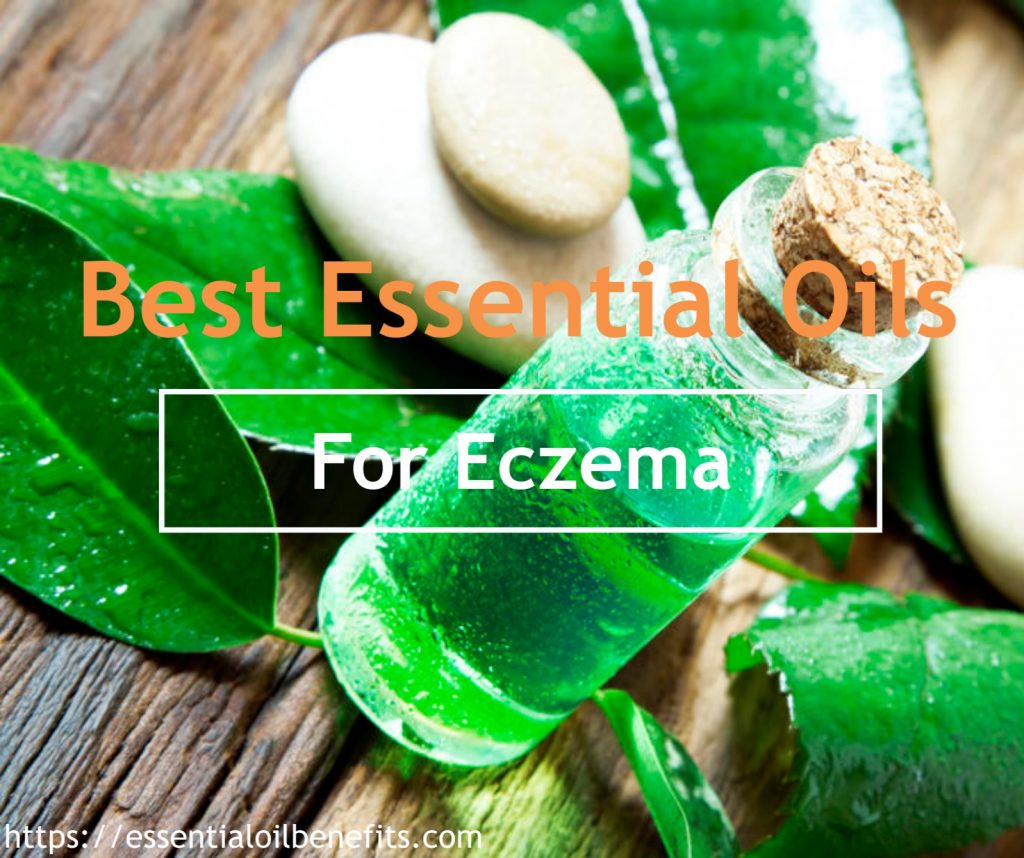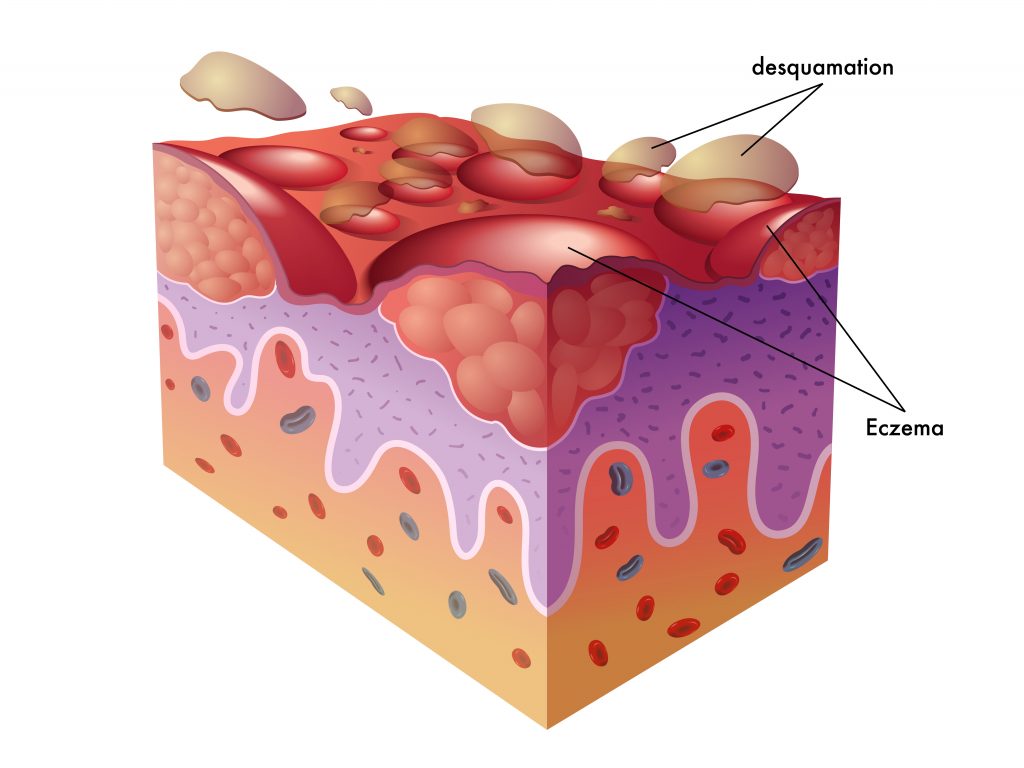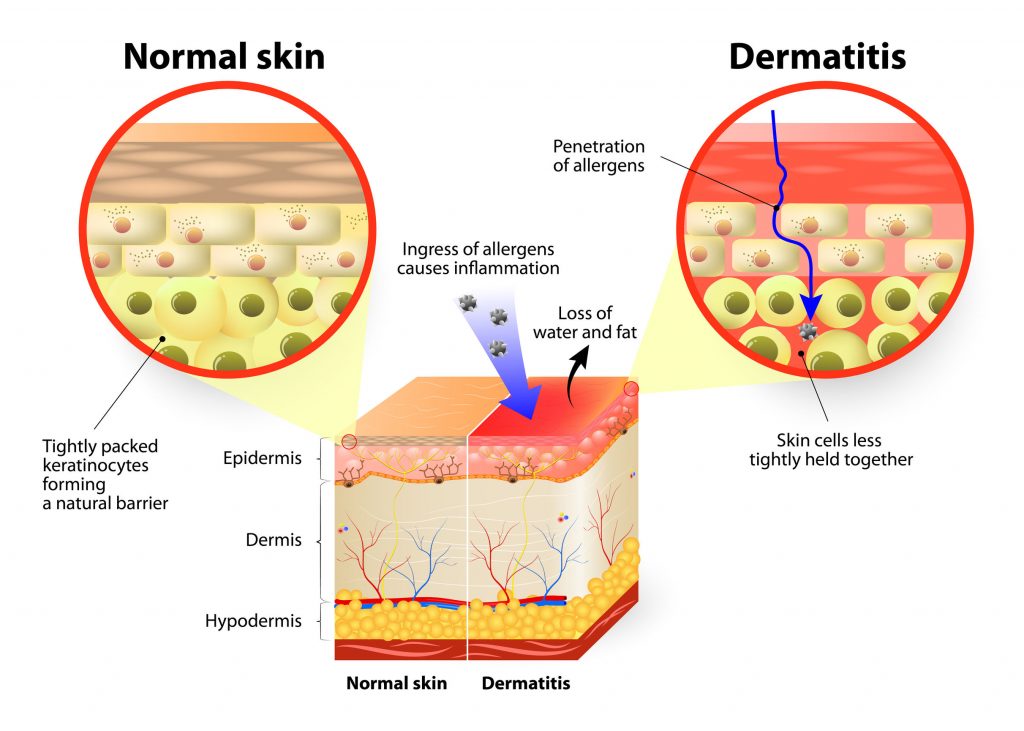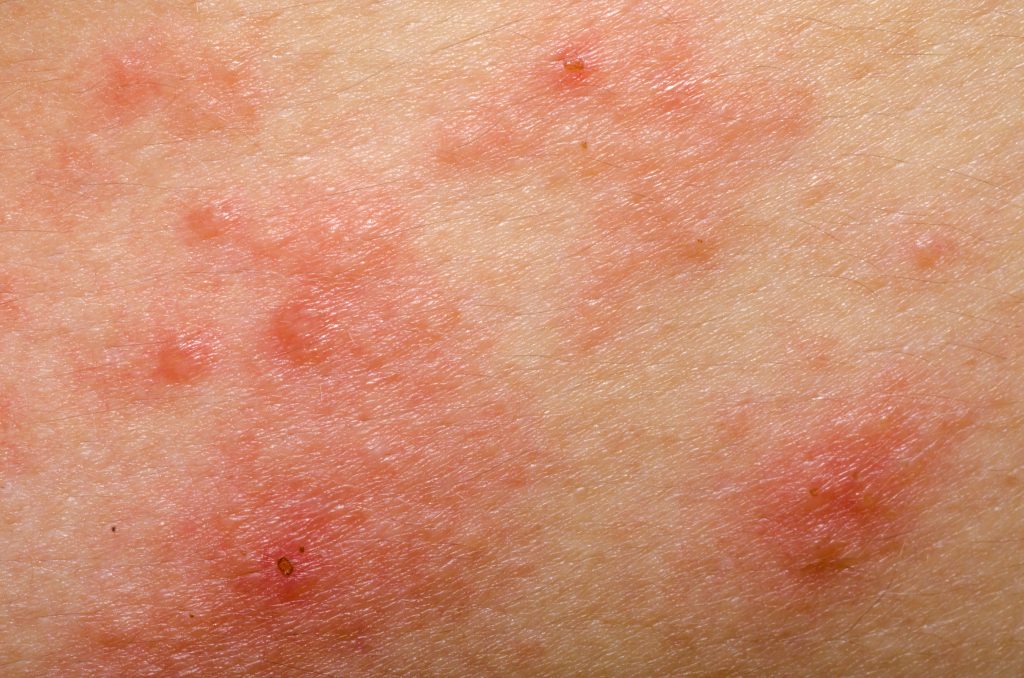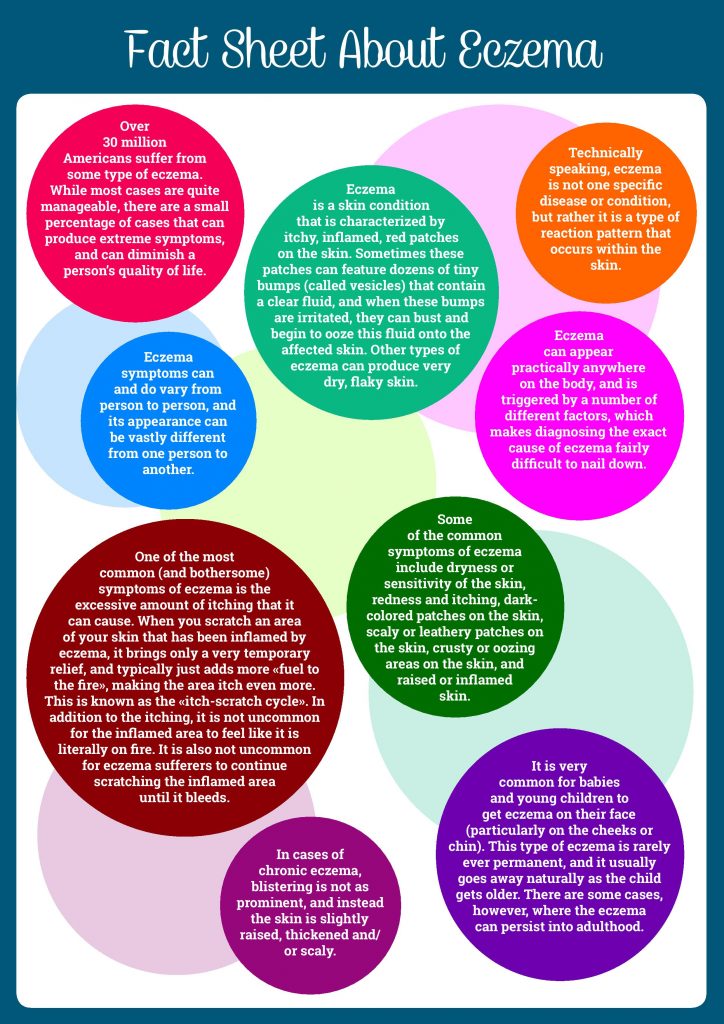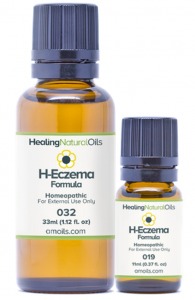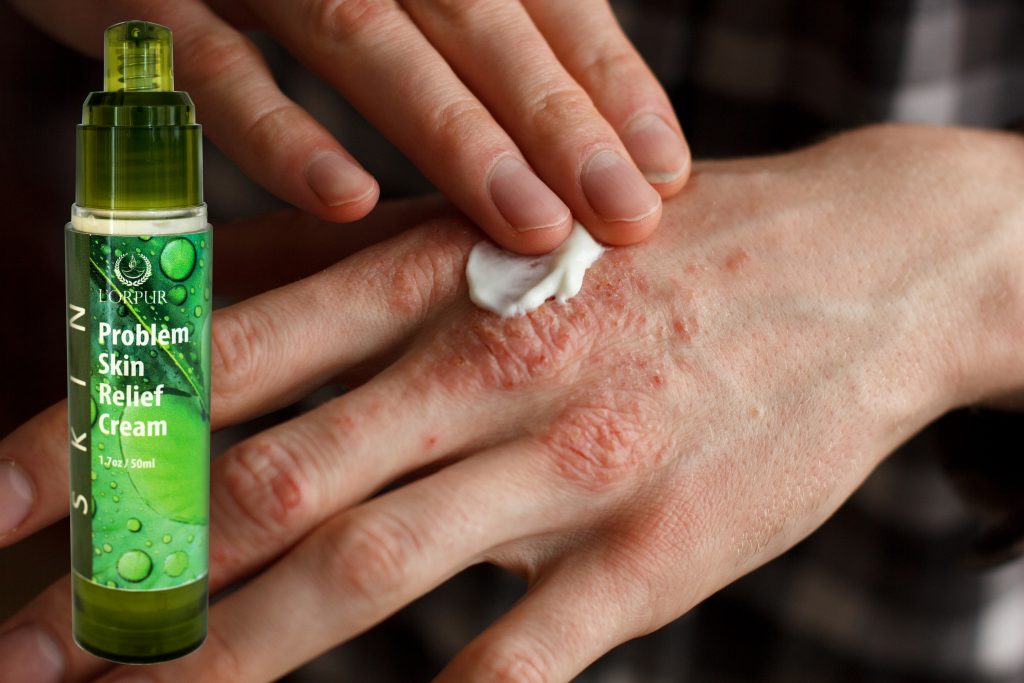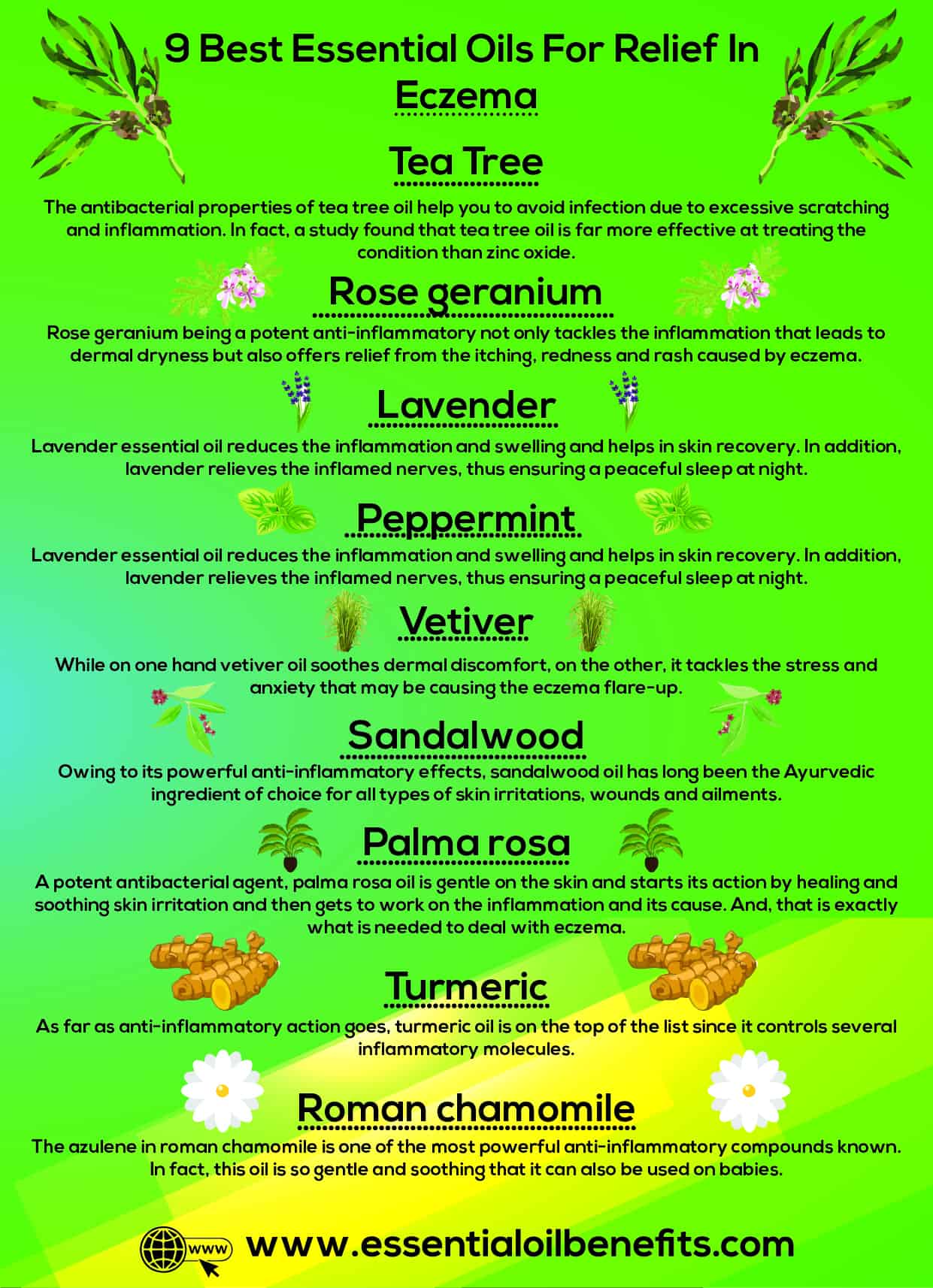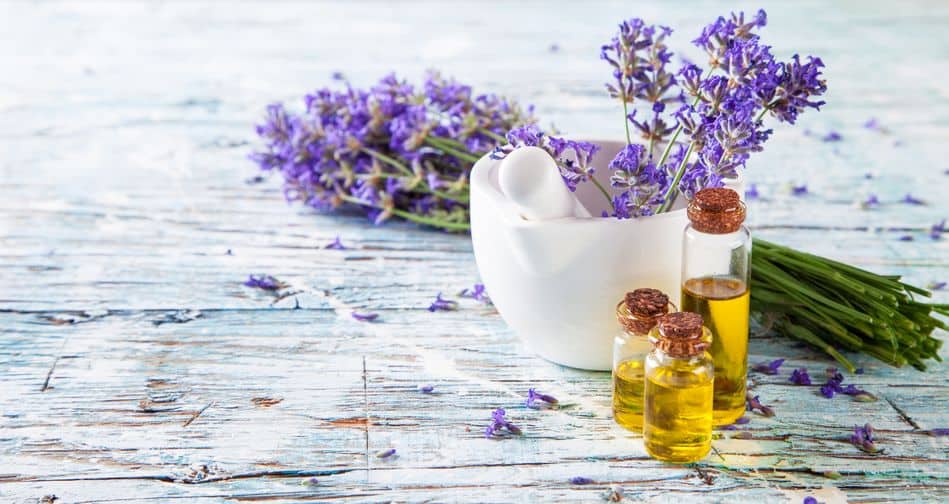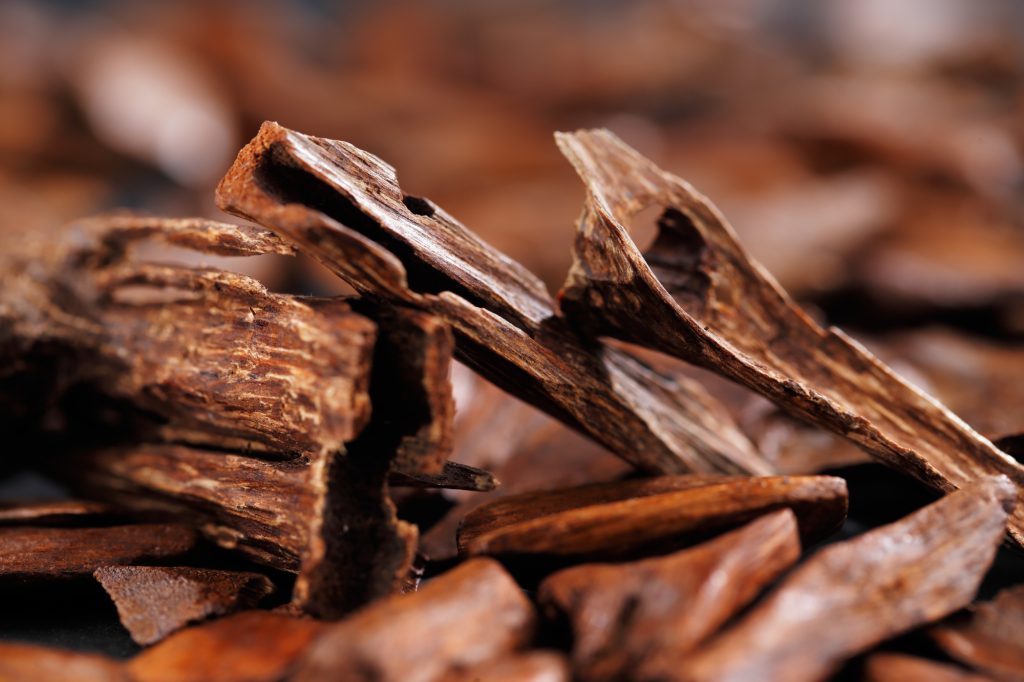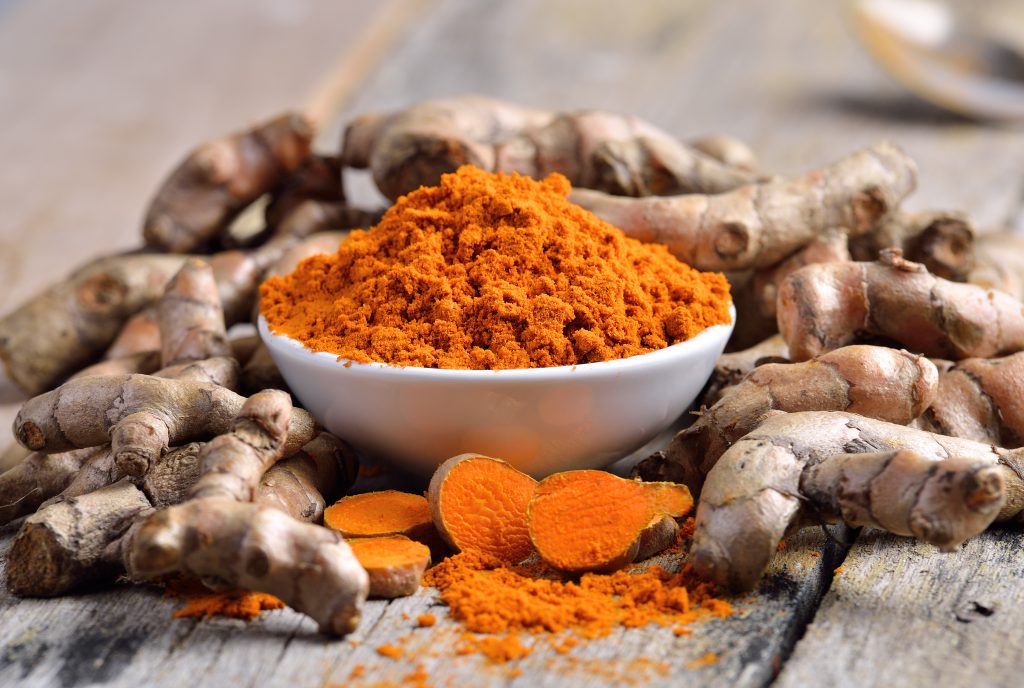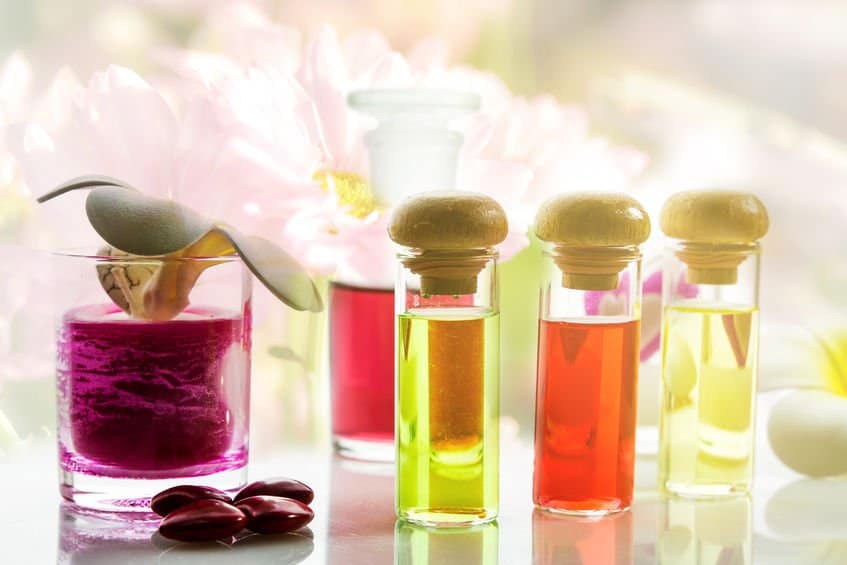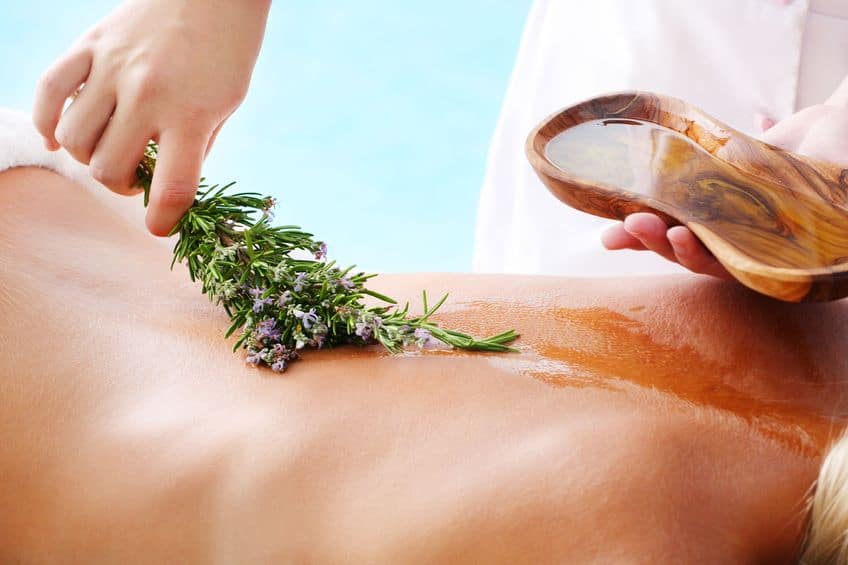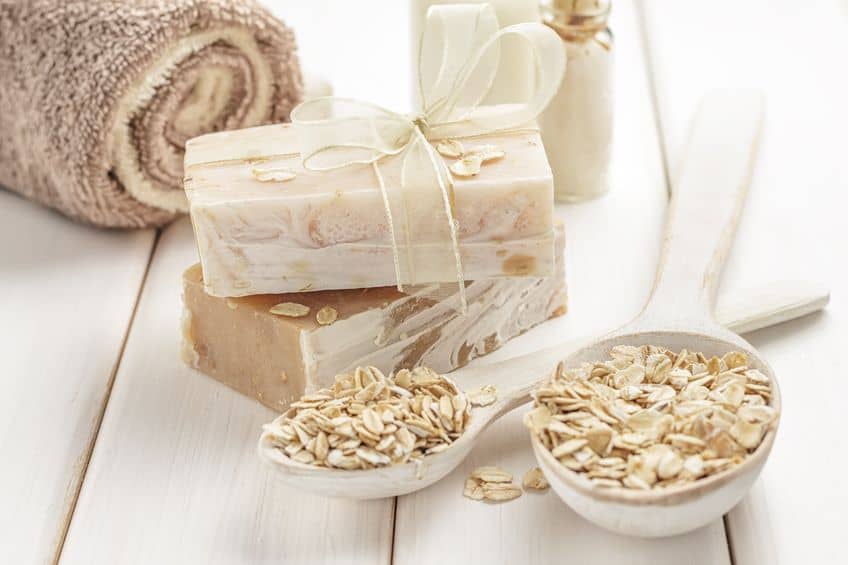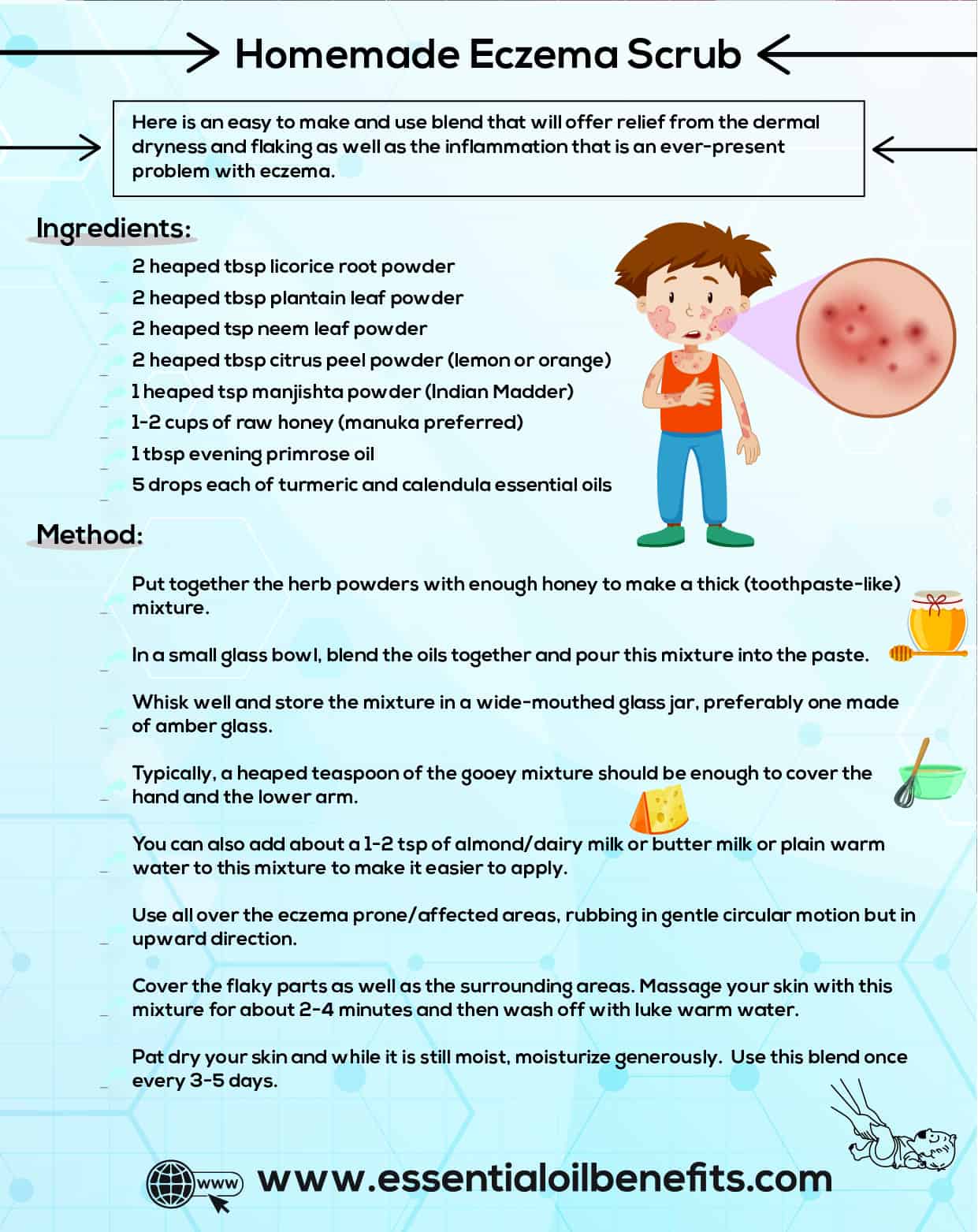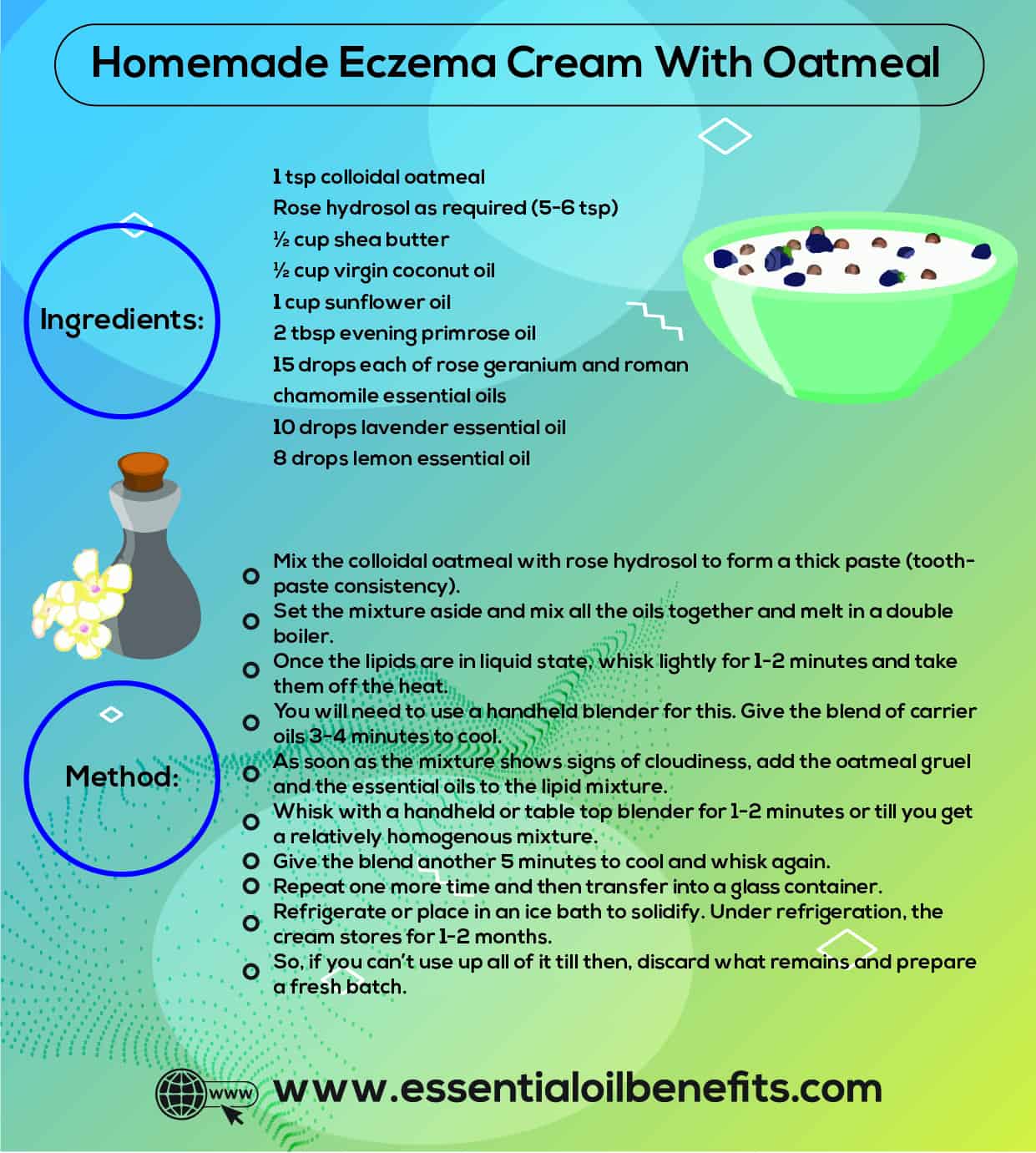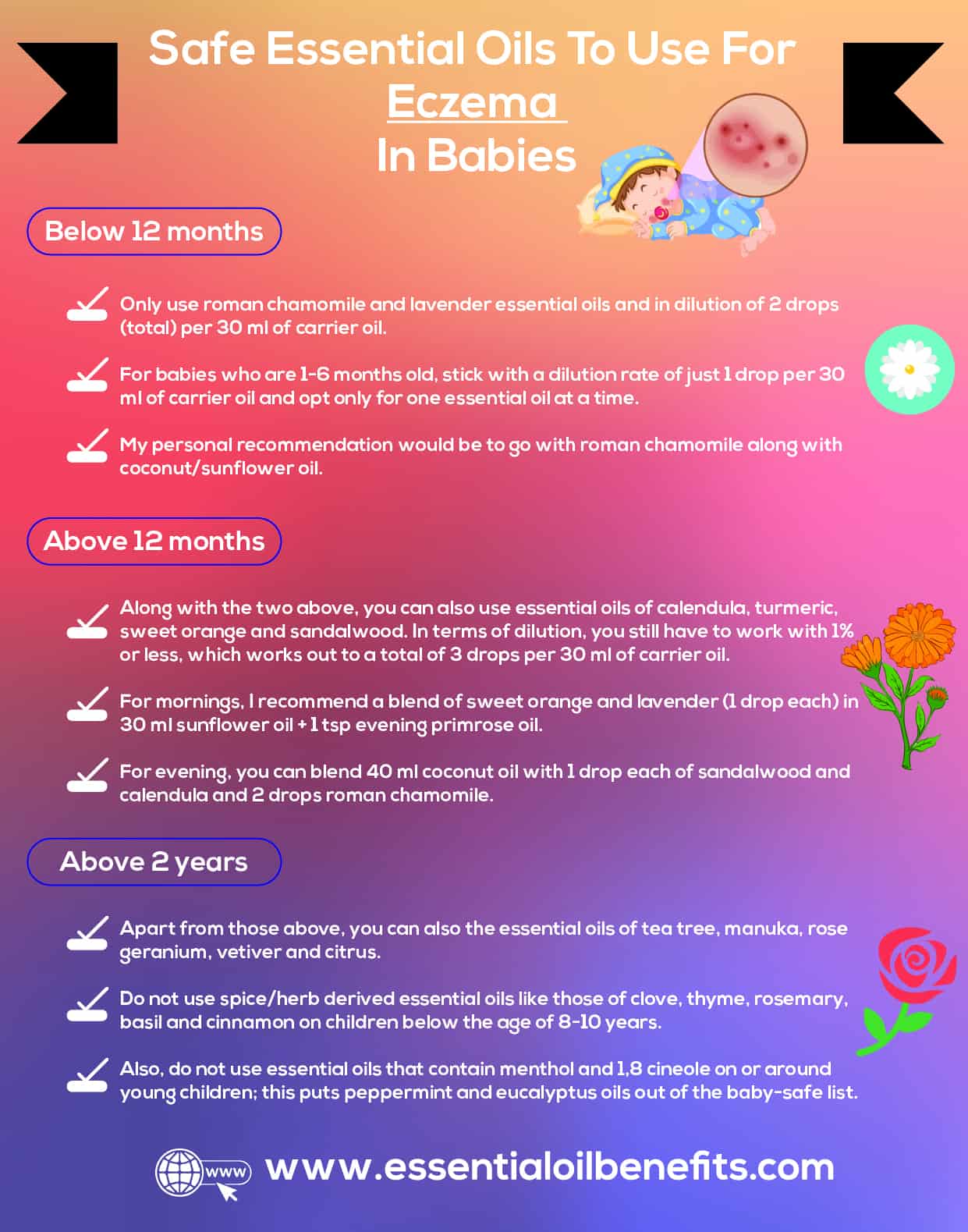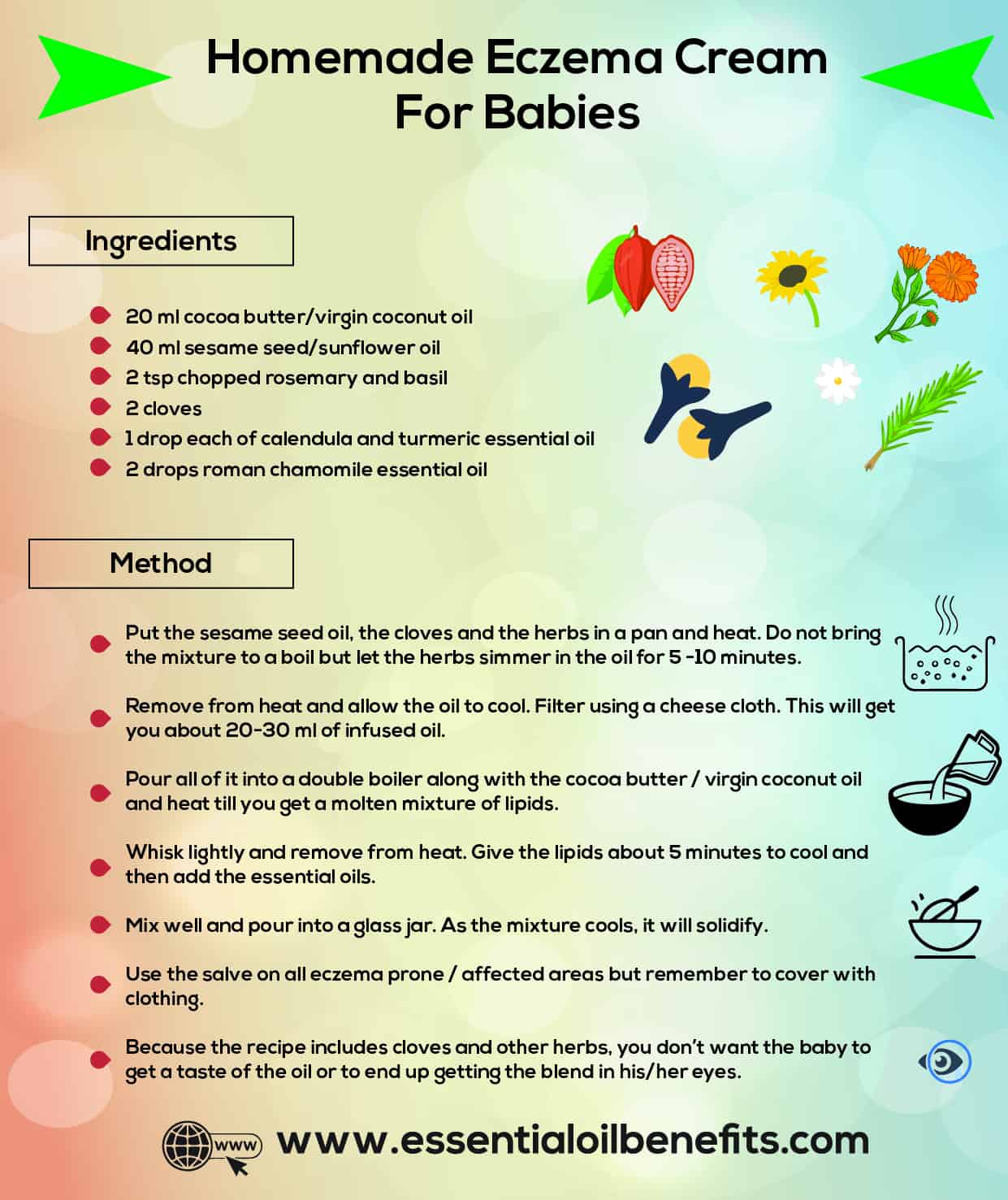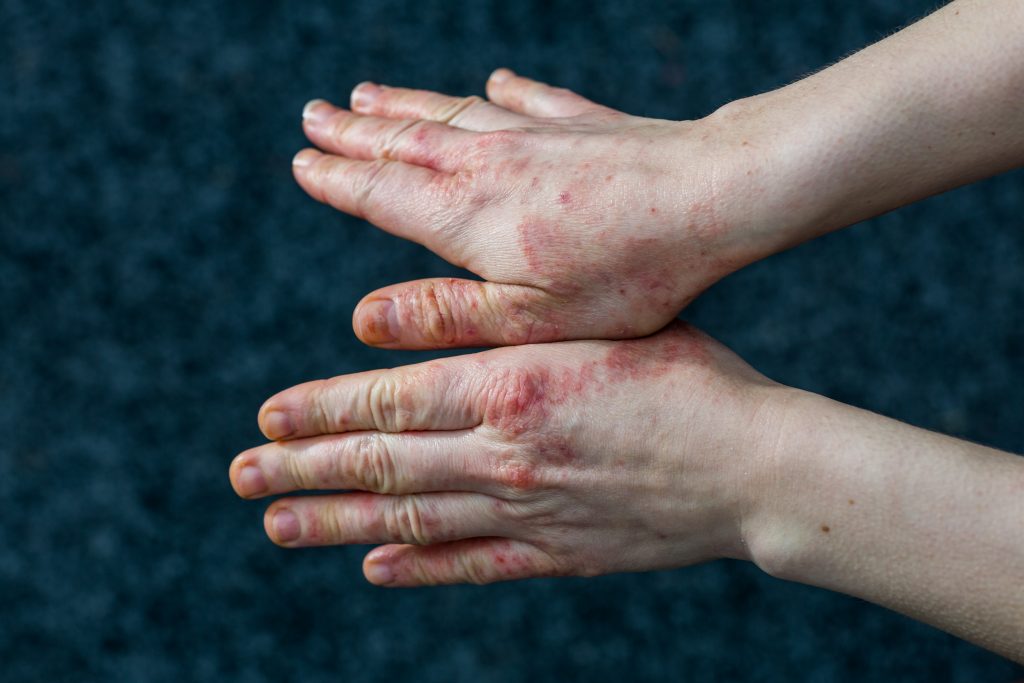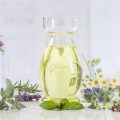What Is Eczema?
Eczema (frequently called dermatitis) derives its name from the Greek word that means “to boil” and refers to a group of dermal issues / skin ailments that lead to extreme skin dryness, rash, redness and intense itching. A fairly common dermal problem, nearly 18 million adults and 10 million children suffer from eczema in the US.
Victims usually feel uncomfortable occupied with constant itching as they establish hot, flaky and scratchy patches on their skin. Their skin might end up being exceptionally swollen, dry and split, ultimately resulting in the formation of blisters.
Also known as atopic dermatitis, the condition has an early start, with as many as 70% of the cases reported in patients younger than 5 years old. Unfortunately, this is not a “childhood-only” ailment, and 60% of the children diagnosed with the condition, continue to experience symptoms into their adulthood.
Causes Of Eczema
The cause for eczema is not fully understood, although it is believed to be caused by an over-reaction of the body’s immune system to an allergen, i.e. it generally develops when the skin of an individual tends to be highly sensitive to irritants such as dust, pollen, mould, chemicals, animal dander, or some specific foods.
It is an immunological issue that gets triggered by compromised skin barrier function and leads to chronic inflammation. When the lipid barrier that is meant to protect the skin cells falls weak, it develops cracks. These lead to the loss of moisture and serve as a pathway for allergens to get to the deeper dermal layers.
To add to the trouble, the parched cells cannot regenerate as they should, which compounds the problem. The allergens that manage through the skin’s defense system trigger an immune response, which leads to inflammation and further dermal damage.
Normally, the immune response gets turned off after a while, but in those with atopic dermatitis, the immune system continues unabated, leading to chronic inflammation and long standing skin damage. This increases the skin’s vulnerability to allergens and the risk of a more heightened immune response. And that is what is experienced as eczema flare-ups.
Eczema can appear on any part of the body, with limbs, cheeks, forehead, the region around the ears, and parts where the skin folds being more vulnerable. In spite of it being problematic and unattractive, eczema is not transmittable.
The disease might initially disappear after a particular treatment, but it may always come back. Relentless rubbing or scratching can worsen the situation, causing the formation of dark, thick, scaly, and crusted red patches on the skin. This can be exceptionally traumatic and results in additional stress and anxiety.
Symptoms Of Eczema
- Intense itching
- Redness and inflammation
- Appearance of rash after itching
- Changes in pigmentation
- Oozing and wet lesions
- Scaly and dry patches
- Thickened skin in affected areas
- Extreme skin dryness
Eczema itching and rash usually occurs on the face, hands, feet, back of the knees and wrists. Also in many cases, eczema flare ups are trigged by food allergies, hay fever, rhinitis and cough.
Facts About Eczema
The two images below show 13 facts about Eczema.
When To See Your Doctor?
- You have a family history of allergies and eczema and develop an itchy rash.
- The rash begins to ooze and becomes pus filled.
- The lesions develop yellowish or brownish crust.
- The inflammation does not respond to home or OTC treatments.
- If eczema flare-ups become more frequent and intense.
- If you are exposed to a person with an infectious viral/bacterial disease while suffering an eczema flare-up.
- If areas of eczema develop fluid filled blisters.
- If the symptoms hinder sleep and daily activities.
- If there is a spread in the areas of eczema and the emergence of new symptoms.
Why Use Essential Oils For The Treatment Of Eczema?
You already know that the immune response, which eventually leads to eczema, starts with dermal dryness that occurs when the skin’s protective barrier does not work as it should. Well for starters, the mix of essential and carrier oils fortifies this wall.
Also, essential oils are extremely effective antimicrobial, anti-inflammatory / anti-allergic agents. So, they help to keep the invaders out, thereby reducing the risk of the immune system going into hyper drive. Furthermore, these aromatic extracts help to regulate the functioning of the immune system by toning down the immunological response that leads to inflammation.
This means that they prevent or at least significantly reduce the risk of inflammation. As far as the existing redness and inflammation is concerned, these oils are among the most potent anti-inflammatory compounds. So, that’s a double whammy delivered to inflammation.
To top it all, the natural heating and cooling effect of these oils helps to tackle the itching and hence the urge to scratch. The moral of the story is that with essential oils, you get a complete anti-eczema solution that helps to both prevent and treat the condition.
Why Standard Treatment Fail?
Non-steroidal anti-inflammatory drugs such as ibuprofen, naproxen and others, corticosteroids, and drugs that imitate the hormones produced naturally by the body, are generally recommended to help you obtain relief from the symptoms of eczema.
The issue with many of these treatments is that they just aim to ease the signs and symptoms and do not address the root cause of the problem.
Corticosteroids must only be used for short-term because such medicines trigger severe side effects such as thinning of the skin and even osteoporosis in some cases.
Recommended Natural Products For Eczema Relief
1. Amoils H-Eczema
Despite all of the above, if you are after a fast relief from itching, pain and sores associated with Eczema, my recommendation would be to use the AMOILS product below.
H-Eczema is a 100% all-natural home treatment remedy which will heal your skin beautifully. It can safely be used for the treatment of eczema in children as well and comes with a 90 day money back guarantee in case you are not fully satisfied. Click Here To Read My Review On H-Eczema.
2. L’orpur Problem Skin Relief Natural Cream
The L’orpur Problem Skin Relief Natural Cream is designed to treat and prevent recurrence of difficult skin conditions including eczema. It has unmatched anti-bacterial and healing properties and provides instant and long-lasting relief for red, itchy, scaly rashes as well as dry, flaky, peeling, red and irritated skin. Click here to read more about this cream.
Best 9 Essential Oils For Best Possible Relief In Eczema?
Here are some the 9 best essential oils I recommend to people suffering from eczema:
1. Tea Tree
If somebody asks me to recommend one single oil that can be used as a standalone treatment for eczema, then tea tree oil will certainly be my choice. The antibacterial properties of this oil help you to avoid infection due to excessive scratching and inflammation.
Add to this the fact that tea tree oil is one of the few natural substances that have been clinically proven to be effective against eczema and it is easy to understand why you would want to include this oil in your anti-eczema blend. In fact, through a 2011 study, it was found that tea tree oil is far more effective at treating the condition than zinc oxide.
2. Rose Geranium
Rose geranium is an elixir for those who are dealing with any type of inflammatory dermal issue. A potent anti-inflammatory and calming agent, this oil not only tackles the inflammation that leads to dermal dryness but also offers relief from the itching, redness and rash caused by eczema.
3. Lavender
Lavender essential oil reduces the inflammation and swelling and helps in skin recovery. In addition, lavender relieves the inflamed nerves, thus ensuring a peaceful sleep at night. This oil is also proven to be useful if extreme itchiness is bothering you and driving you insane. Considering its mild nature, lavender can be used in bath water of babies or kids suffering from eczema.
4. Peppermint
Peppermint is known to offer quick relief in eczema thanks to its intense cooling and sensitizing effects. If eczema rash or lesions are causing itching and pain, this oil will soothe things within a matter of minutes. Additionally, peppermint also offers antimicrobial and antioxidant benefits that prevent allergens from triggering a flare-up.
5. Vetiver
The earthy aroma of this oil has a grounding and calming effect on both the mind and the body. So, while on one hand it soothes dermal discomfort, on the other, it tackles the stress and anxiety that may be causing the eczema flare-up. Moreover, vetiver promotes faster healing of dry and inflamed skin.
6. Sandalwood
Although a tad expensive and hard to get, sandalwood is worth the money and the effort you invest in finding it. Owing to its powerful anti-inflammatory effects, this skin healing oil has long been the Ayurvedic ingredient of choice for all types of skin irritations, wounds and ailments. Also, the sweet, earthy and woody aroma of the oil relaxes the mind and promotes restful sleep, which can go a long way in treating eczema.
7. Palma Rosa
You may prefer the intense fragrance of Rosa damascena or absolute over this humble oil but that is certainly no reason to underestimate its healing powers. In fact, when it comes to tending to the needs of dry and inflamed skin, palma rosa oil is second to none.
A potent antibacterial agent, the oil is gentle on the skin and starts its action by healing and soothing skin irritation and then gets to work on the inflammation and its cause. And, that is exactly what is needed to deal with eczema.
8. Turmeric
As far as anti-inflammatory action goes, turmeric oil is on the top of the list since it controls several inflammatory molecules, including COX-2. Moreover, this oil has tremendous antinociceptive and anti-oxidant powers that inhibits pain sensation and neutralize allergens on contact.
If that is not enough, this aromatic extract also helps in the faster removal of metabolic waste and toxins from the skin. This lowers the risk of an inflammatory response being triggered from the inside.
9. Roman Chamomile
The blue oil is one of the few natural ingredients that have been tested against eczema in a clinical setting, and guess what? It came out with flying colors! And why not? After all, the azulene in roman chamomile is one of the most powerful anti-inflammatory compounds known to mankind. In fact, this oil is so gentle and soothing that it can also be used on babies.
Apart from these, you may also want to consider using the essential oils of calendula and thyme and neem seed oil. All of these boast of a range of skin healing benefits that can uproot eczema from your life.
3 Best Carrier Oils For Eczema
1. Sesame oil
Sesame oil, which is dark and yellowish-brown in color, is rich in vitamins A and E and considered suitable even for those with delicate skin. The key reason why people of all age groups can use it is that it does not cause any side effects or sets off allergies.
The oil’s high vitamin E content, in particular, makes it a great option for those with eczema. Due to the fact that vitamin E supports recovery, Sesame oil will help you get rid of swelling and inflammation. This oil does have a unique nutty smell that some individuals find unpleasant, so make certain to have a sniff prior to using it on your body.
2. Jojoba oil
Jojoba oil is light-colored and smooth and extracted from the seeds of the jojoba plant. It is a great moisturizer and quickly gets absorbed on your skin. In addition, it can easily deal with dry and scaly skin, which is the most common symptom of eczema.
Since it helps in regulating the skin oil, any rashes can be easily avoided. I can certainly recommend jojoba as a carrier or simply as a daily treatment for eczema no matter whether your eczema is chronic or acute. Rosacea is another skin condition that jojoba oil can effectively deal with.
3. Evening Primrose oil
Evening Primrose oil is pale yellow in color. It is very rich in fatty acids, therefore accelerates the healing process and reduces swelling.
2 Ways To Use Essential Oils For Natural And Sustainable Relief Of Eczema
1. Topical application
Directions:
- To start off, pick any one of the essential oils mentioned above. My preference would be tea tree or lavender.
- Before applying to your skin, dilute it with your choice of carrier oil. Simply mix 18 drops of essential oil with 1 ounce of carrier oil and store in a dark colored glass bottle.
- Gently rub the blend onto the affected parts in circular motion. Apply up 3 times daily for prompt relief.
2. Oat meal bath
Directions:
- Take 2 tablespoons each of fresh lavender buds and oatmeal. Use plain oat meal.
- Put the lavender and oatmeal in a mixer and blend until they form a paste.
- Get some cheese cloth or muslin cloth and stretch it.
- Collect the lavender/oatmeal blend from the mixer and place it in the center of the cheese cloth. Pull up the sides to make a bag. Take a piece of string or ribbon to fasten the bag’s mouth, leaving a length of it hanging loose.
- Prepare a warm bath, adding 6 to 8 drops of rose geranium essential oil to the tub. The oil will develop a soothing vapor as soon as it combines with the steam of the bath.
- Use the long end of the string from the lavender/oatmeal bag to tie it on the tub faucet. Immerse the bag in water completely.
- Rub the bag on your dry skin as you take your bath. It will reduce itching and inflammation as you relax yourself in the bath.
- Add a drop or two of sandalwood oil to some plain, odorless body cream. Apply on your skin after the bath.
Best Essential Oil Recipes For Instant Relief In Eczema
1. Body oil recipe
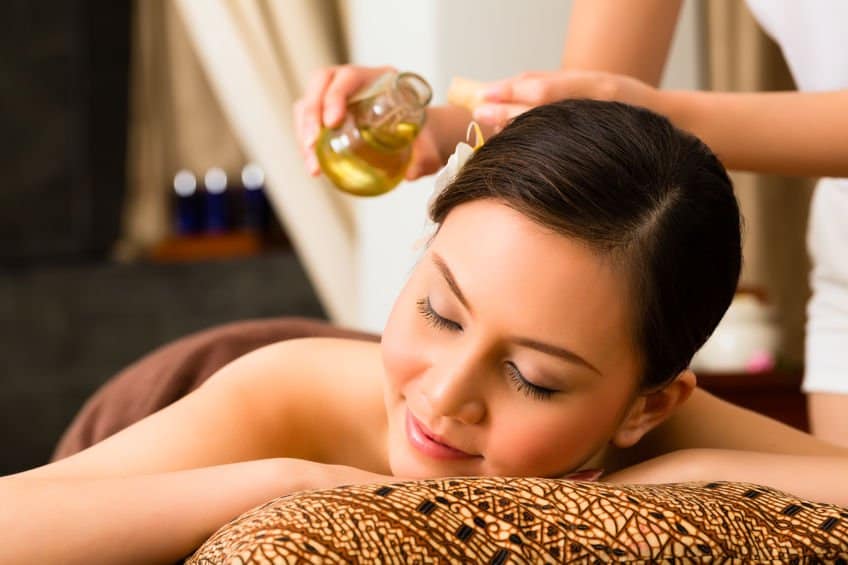
This luxurious body oil when massaged on your body relieves anxiety and stress significantly. Here is how to prepare it:
Take 1 oz. of carrier oil, add 4 drops roman chamomile, 6 drops tea tree, 5 drops vetiver, 1 pill vitamin E and mix carefully. Massage this blend on the affected areas up to 3 times a day. You can also prepare a bath by using 1 teaspoon of this blend.
In cases where eczema is present on the eyelids, it is extremely important to identify the irritants responsible for exacerbating the situation. And of course, discontinue using the product as soon as possible. Common irritants that trigger eczema on the eyelids include soap, cleaning agents, cosmetics, dust and pollen dust from the plants.
2. Eczema scrub recipe
Even when you are not in the midst of a flare up, eczema can leave your skin dry and flaky, which inevitably causes itching. Hence, it is crucial to get rid of the cellular debris. Unfortunately, eczema prone skin is usually quite sensitive, which means using a loofah or harsh exfoliant may not be an option for you if you suffer from the condition.
So, here is an easy to make and use blend that will offer relief from the dermal dryness and flaking as well as the inflammation that is an ever-present problem with eczema. You will need:
- 2 heaped tbsp licorice root powder
- 2 heaped tbsp plantain leaf powder
- 2 heaped tsp neem leaf powder
- 2 heaped tbsp citrus peel powder (lemon or orange)
- 1 heaped tsp manjishta powder (Indian Madder)
- 1-2 cups of raw honey (manuka preferred)
- 1 tbsp evening primrose oil
- 5 drops each of turmeric and calendula essential oils
Directions:
Put together the herb powders with enough honey to make a thick (toothpaste-like) mixture. In a small glass bowl, blend the oils together and pour this mixture into the paste. Whisk well and store the mixture in a wide-mouthed glass jar, preferably one made of amber glass.
If you can’t find a dark glass jar, simply use some tape on the outside of the jar to shield the blend from degradation due to light-exposure. Store in a cool and dry place, away from sunlight and moisture. If you don’t introduce water/moisture into the blend, it will stay good for up to 4-5 months. So, remember to use a dry spoon to remove as much as you need for each use.
Typically, a heaped teaspoon of the gooey mixture should be enough to cover the hand and the lower arm. Remember to whisk the mixture well before removing the required amount into a bowl. Add about a 1-2 tsp of almond/dairy milk or butter milk or plain warm water to this mixture to make it easier to apply. Use all over the eczema prone/affected areas, rubbing in gentle circular motion but in upward direction.
Cover the flaky parts as well as the surrounding areas. Massage your skin with this mixture for about 2-4 minutes and then wash off with luke warm water. Pat dry your skin and while it is still moist, moisturize generously. Use this blend once every 3-5 days.
3. Gel for eczema
You can blend essential oils in Aloe Vera gel to deal with eczema. When using this gel, you are advised to apply it on a small area of your skin initially, prior to using it all over. A good area to test is the back of your hand near your wrist. If there is no skin irritation or inflammation, you are good to go.
Consider adding apple cider vinegar to this gel, as that will help in making the skin more acidic. For those suffering from eczema, it is necessary to keep your skin pH close to 5.5. Doing so keeps the skin moist and eczema causing bacteria at bay. You will need:
- 4 oz aloe vera gel
- 1 tbs apple cider vinegar
- 4 drops carrot seed
- 6 drops tea tree
- 2 drops rose geranium
Directions:
Mix all ingredients together in a small glass container. Apply to the affected areas up to 3 times daily.
4. Homemade eczema cream with oatmeal
- 1 tsp colloidal oatmeal (not heaped)
- Rose hydrosol as required (5-6 tsp should be enough)
- ½ cup shea butter
- ½ cup virgin coconut oil
- 1 cup sunflower oil
- 2 tbsp evening primrose oil
- 15 drops each of rose geranium and roman chamomile
- 10 drops lavender
- 8 drops lemon
Directions:
Mix the colloidal oatmeal with rose hydrosol to form a thick paste (toothpaste consistency). Set the mixture aside and mix all the oils together and melt in a double boiler. Once the lipids are in liquid state, whisk lightly for 1-2 minutes and take them off the heat.
You will need to use a handheld blender for this. Give the blend of carrier oils 3-4 minutes to cool. As soon as the mixture shows signs of cloudiness, add the oatmeal gruel and the essential oils to the lipid mixture. Whisk with a handheld or table top blender for 1-2 minutes or till you get a relatively homogenous mixture.
Give the blend another 5 minutes to cool and whisk again. Repeat one more time and then transfer into a glass container. Refrigerate or place in an ice bath to solidify. Under refrigeration, the cream stores for 1-2 months. So, if you can’t use up all of it till then, discard what remains and prepare a fresh batch.
5. Oil bath recipe
This one comes directly from the scriptures of Ayurveda. Known as abhyanga, the self-oil massage before bath time is good for your skin, mind and body. For this you will need:
- 120 ml carrier oil (a mixture of sesame seed, coconut and sunflower seed oil in 1:1:1 proportion)
- 8 drops of mandarin or sweet orange essential oil
- 5 drops of palma rosa
Mix the oils and store in a dark glass bottle. Massage the blend all over your body about 30-45 minutes before bath time. Remember to only use luke warm water for your showers. Pat dry your skin and moisturize within 3 minutes.
Essential Oils & Recipes For Eczema In Babies & Children
Safe Essential Oils To Use For Eczema In Babies
Below 12 months
Only use roman chamomile and lavender essential oils and in dilution of 2 drops (total) per 30 ml of carrier oil. For babies who are 1-6 months old, stick with a dilution rate of just 1 drop per 30 ml of carrier oil and opt only for one essential oil at a time. My personal recommendation would be to go with roman chamomile along with coconut/sunflower oil.
Above 12 months
Along with the two above, you can also use essential oils of calendula, turmeric, sweet orange and sandalwood. In terms of dilution, you still have to work with 1% or less, which works out to a total of 3 drops per 30 ml of carrier oil.
For mornings, I recommend a blend of sweet orange and lavender (1 drop each) in 30 ml sunflower oil + 1 tsp evening primrose oil. For evening, you can blend 40 ml coconut oil with 1 drop each of sandalwood and calendula and 2 drops roman chamomile.
Above 2 years
Apart from those above, you can also the essential oils of tea tree, manuka, rose geranium, vetiver and citrus. Do not use spice/herb derived essential oils like those of clove, thyme, rosemary, basil and cinnamon on children below the age of 8-10 years. Also, do not use essential oils that contain menthol and 1,8 cineole on or around young children; this puts peppermint and eucalyptus oils out of the baby-safe list.
Homemade eczema cream for babies (2 years and under)
- 20 ml cocoa butter/virgin coconut oil
- 40 ml sesame seed/sunflower oil
- 2 tsp chopped rosemary and basil
- 2 cloves
- 1 drop each of calendula and turmeric essential oil
- 2 drops roman chamomile
Directions:
Put the sesame seed oil, the cloves and the herbs in a pan and heat. Do not bring the mixture to a boil but let the herbs simmer in the oil for 5 -10 minutes. Then, remove from heat and allow the oil to cool. Filter using a cheese cloth. This will get you about 20-30 ml of infused oil.
Pour all of it into a double boiler along with the cocoa butter/ virgin coconut oil and heat till you get a molten mixture of lipids. Whisk lightly and remove from heat. Give the lipids about 5 minutes to cool and then add the essential oils. Mix well and pour into a glass jar. As the mixture cools, it will solidify.
Use the salve on all eczema prone/affected areas but remember to cover with clothing. Because the recipe includes cloves and other herbs, you don’t want the baby to get a taste of the oil or to end up getting the blend in his/her eyes.
Eczema lotion recipe (for children 6+ years)
While essential oils can easily be diluted in any carrier oil, you can alternatively use plant based butters for treating eczema in children. I have found the recipe below to be really beneficial for my 6 year old. Here is what you need to prepare this eczema lotion:
- 2 tbsp shea butter
- 2 tbsp coconut oil
- 3 drops roman chamomile
- 4 drops lavender
- 2 drops tea tree
Directions:
Fill a saucepan half way with water and heat the water over medium heat. In a mason jar, add shea butter and coconut oil. Put this jar over the saucepan until the oils melt. Allow this mix to cool. Mix the essential oils into it and store in a cool place. Use this cream twice a day over affected areas of your child’s body.
How To Get Rid Of Dyshidrotic Eczema On Hands?
More than the boils, it’s the intense and almost uncontrollable itching that is the most harrowing symptom of dyshidrotic eczema. Unfortunately, scratching at the fluid filled boils inevitably leads to their rupture and causes tiny, open wounds.
This not only increases the risk of infection but is also the starting point of further inflammation and aggravated symptoms. So, in order to control dyshidrotic eczema, it is crucial to deal with the itching, the boils and the inflammation. Here is a blend that can help you to do all that and more. You will need:
- 30 ml coconut oil
- 5 ml neem seed oil
- 5 drops each of turmeric and eucalyptus
- 7 drops each of calendula and roman chamomile
- 8 drops each of thyme and peppermint
Directions:
Mix the oils and store in a dark glass bottle. To use, apply liberally (dripping wet liberally) on the boils and the surrounding areas and then don a pair of soft gloves. Keep the blend on your hands all through the night and in the morning wash off with luke warm water and moisturize again.
If the itching is particularly intense, mash a 1 inch piece of ginger root and add a pinch of turmeric and ½ tsp raw honey (manuka preferred) to it. Apply this paste in a thick layer on the itchy areas and cover with a bandage. Keep the paste on your skin for 15-20 minutes and then wash off with cold water (room temperature). Follow with the blend above. This blend is not meant for children below the age of 10 years.
How To Prevent Eczema?
Because eczema starts with a compromise in the skin’s barrier function, the first step to preventing flare-ups is to get external reinforcements in the form of rich moisturizers. Apart from this, avoiding triggers also helps. This is what you need to do:
- Avoid fabrics that cause itching such as wool and synthetics.
- Avoid clothes that fit too tightly and don’t wick away sweat.
- Shower and change into clean clothes immediately after a workout.
- Avoid food items that you are allergic to.
- Stay away from common irritants such as harsh detergents, soap, cosmetics, solvents and toiletries with artificial fragrances.
- Moisturize immediately after a shower and after washing your hands.
- Shower with luke warm or room temperature water.
- Wear soft gloves at night to prevent skin damage due to scratching.
- Avoid drastic changes in temperature.
- Use a humidifier in your bedroom at night.
- As far as possible, stick with cotton clothes and wash new clothes before wearing them.
- Wash beddings, pillow covers and bed sheets every week in hot water.
- Use organic and non-perfumed detergents.
- Keep pets off the couch and outside the bedroom.
- Don’t spend a lot of time outdoors in pollen season.
- Practice stress control.
3 Handy Tips For Best Possible Relief In Eczema
Tip 1: Stay away from dairy and wheat based products
It is a well-known fact that dairy products and wheat products can be responsible for worsening or triggering eczema attacks. I recommend that you consume cow’s milk rather than soya. You can also go for lactase free milk. In addition, you can try eliminating strawberries, eggs, pork, shellfish, nuts, wheat, and foods that have variety of chemicals present in them such as processed meats and carbonated beverages from your diet.
Tip 2: Frequent showers or bathing is necessary
In extreme cases of eczema, you need to adopt preventive measures to keep the infection at bay. Routine showers or bathing is recommended; however try using mild and natural soaps and cleansers, i.e. not the ones procured from grocery stores. Artificial ingredients in soaps and cleansers might worsen your eczema as they disturb the pH balance of your skin.
Tip 3: Keep your skin hydrated
Keeping your skin hydrated is highly essential if you are prone to suffering from eczema, as dry skin is more susceptible to breakage and infection. The only challenge in this case is finding the right hydrating creams and lotions that do not include any artificial ingredients. In addition, try finding products that are hypoallergenic and consist of only the natural ingredients.
The Final Word
Stress is really a driving factor that aggravates the condition of eczema to a significant extent. It is quite common for individuals to suffer from serious bouts of eczema if their life is demanding. Over a period of 15+ years, I have tried and tested several essential oils. The essential oils mentioned in the above post have shown promising results without aggravating the already harmed skin.
These essential oils are equally outstanding when it comes to combating stress and this perhaps explains why they are so effective in tackling eczema.

